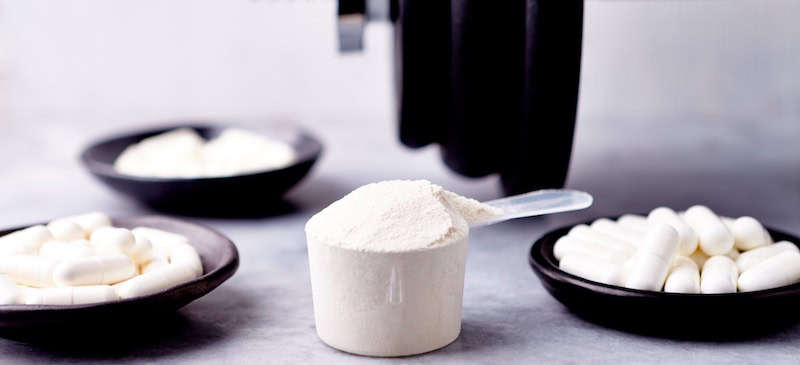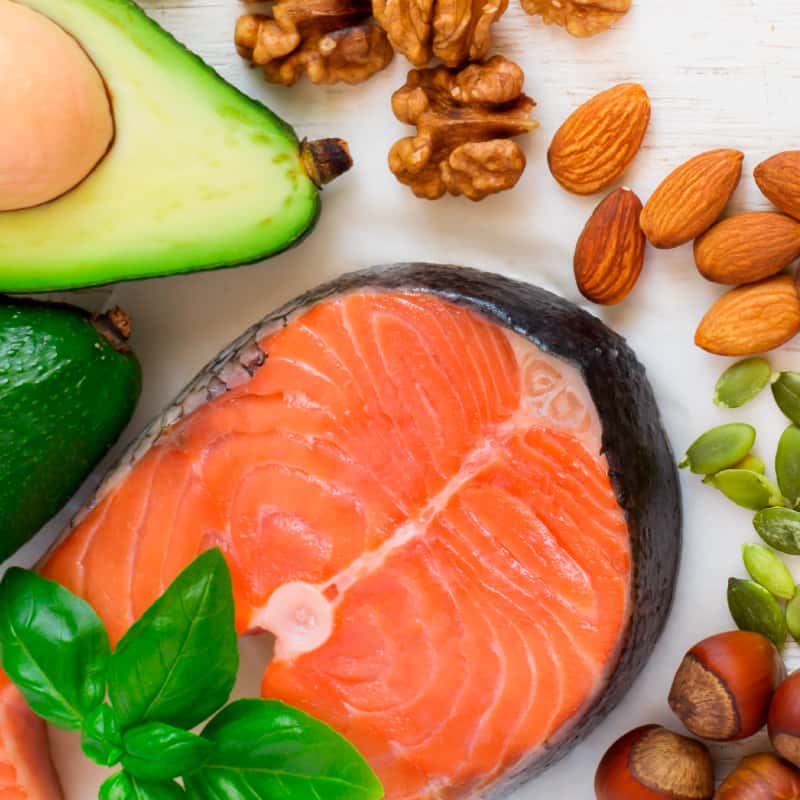This Dr. Axe content is medically reviewed or fact checked to ensure factually accurate information.
With strict editorial sourcing guidelines, we only link to academic research institutions, reputable media sites and, when research is available, medically peer-reviewed studies. Note that the numbers in parentheses (1, 2, etc.) are clickable links to these studies.
The information in our articles is NOT intended to replace a one-on-one relationship with a qualified health care professional and is not intended as medical advice.
This article is based on scientific evidence, written by experts and fact checked by our trained editorial staff. Note that the numbers in parentheses (1, 2, etc.) are clickable links to medically peer-reviewed studies.
Our team includes licensed nutritionists and dietitians, certified health education specialists, as well as certified strength and conditioning specialists, personal trainers and corrective exercise specialists. Our team aims to be not only thorough with its research, but also objective and unbiased.
The information in our articles is NOT intended to replace a one-on-one relationship with a qualified health care professional and is not intended as medical advice.
Beta-Alanine Benefits for Exercise Performance & Beyond
May 13, 2025

If you’re looking to enhance your workout performance or boost your endurance, you may have come across beta-alanine.
This naturally occurring amino acid has gained popularity among athletes and fitness enthusiasts for its ability to support physical performance.
So what exactly is beta-alanine, how does it work and what benefits can it offer? Let’s explore these questions and more.
What is beta-alanine?
Beta-alanine is a non-essential amino acid, meaning your body can produce it naturally. Unlike other amino acids that are used to build proteins, it serves as a building block for a compound called carnosine.
Carnosine is primarily found in muscle tissue and helps buffer acid accumulation during intense physical activity, delaying the onset of muscle fatigue.
This is why beta-alanine is a popular supplement among individuals looking to improve exercise performance.
How it works
When you consume beta-alanine, it combines with another amino acid, histidine, to produce carnosine. Carnosine accumulates in your muscles, where it acts as a pH buffer.
During high-intensity exercise, hydrogen ions build up in your muscles, causing a drop in pH and leading to muscle fatigue. By increasing muscle carnosine levels, beta-alanine helps counteract this drop, allowing you to push harder and longer during workouts.
Beta-alanine benefits
1. Helps improve exercise performance
Beta-alanine is particularly beneficial for high-intensity activities, such as weightlifting, sprinting and high-intensity interval training (HIIT) workouts. It enhances endurance and strength by reducing fatigue and increasing muscle output.
Supplementation is particularly effective for short high-intensity activities that last roughly one to four minutes.
A meta-analysis published in 2012, for instance, found that beta-alanine improved exercise outcomes by 2.85% compared to placebo. This improvement was most pronounced in exercises that lasted 60-240 seconds.
2. Delays muscle fatigue
By buffering acid in your muscles, beta-alanine allows you to perform more repetitions or sustain effort for longer periods during exercises.
It does this by increasing muscle carnosine levels, which helps buffer lactic acid accumulation, delaying the onset of muscle fatigue.
A study on cyclists found that beta-alanine supplementation led to 23% longer time to exhaustion and 24% lower lactate concentrations.
3. Supports muscle growth
While not directly responsible for building muscle, beta-alanine can indirectly promote muscle growth by enabling longer and more intense workouts.
Research on trained cyclists showed improved total work done and mean power output after beta-alanine supplementation, for example.
4. May improve cognitive function
Emerging research has suggested that beta-alanine supplementation may benefit brain health by increasing carnosine levels in the brain, potentially improving focus and reducing mental fatigue.
5. May help boost immune health
Carnosine has antioxidant properties that help protect cells from damage. This may offer additional health benefits beyond athletic performance.
In fact, there has been some evidence that has suggested beta-alanine may support immune function, but further research is required to substantiate this claim.
6. May aid body composition
While not a primary effect, the increased capacity for high-intensity training resulting from beta-alanine supplementation may indirectly contribute to improved body composition over time.
Beta-alanine supplementation has shown the most consistent benefits for high-intensity exercise performance and muscle fatigue reduction, with potential secondary effects on muscle growth, body composition and overall health.
However, more research is needed to fully understand its impact on cognitive function and immune health.
Sources
Beta-alanine is naturally found in animal-based foods, particularly in:
Vegetarians and vegans may have lower levels of beta-alanine in their diets, making supplementation particularly beneficial for these groups.
Dosage
For optimal results, research has suggested taking two to five grams of beta-alanine per day. This dosage is typically split into smaller amounts throughout the day to minimize potential side effects, like tingling.
While beta-alanine doesn’t need to be timed with workouts, consistent daily supplementation is crucial for increasing carnosine levels in the muscles.
Risks and side effects
Beta-alanine is generally safe, but some people may experience a tingling sensation called paresthesia. This harmless side effect occurs when high doses are taken at once.
To avoid this, split your dose into smaller amounts throughout the day.
Other potential concerns include:
- Upset stomach: Rare but possible at high doses.
- Unknown long-term effects: While short-term use appears safe, more research is needed on long-term supplementation.
Supplement combining
Beta-alanine is often paired with other supplements for athletes to maximize performance benefits, including:
- Creatine: Helps enhance strength and power.
- Caffeine: Boosts focus and endurance.
- Branched-chain amino acids (BCAAs): Help reduce muscle soreness and support recovery.
- Baking soda (sodium bicarbonate): Can boost exercise performance by reducing acid in muscles and blood.
Combining beta-alanine with creatine is especially popular for those focused on strength and muscle building, as the two work synergistically to enhance overall performance.
Conclusion
- Beta-alanine is a powerhouse supplement for anyone looking to improve workout performance, delay fatigue and maximize endurance. Whether you’re an athlete, bodybuilder or fitness enthusiast, adding it to your routine can help you push your limits.
- By incorporating natural food sources or supplementing with the recommended dosage, you can safely enjoy the benefits of this amino acid.
- For best results, consider pairing it with other performance-enhancing supplements like creatine or caffeine.
- Always consult a healthcare provider before starting any supplement, especially if you have underlying health conditions or are taking medication.
- Elevate your fitness game with this supplement. Your muscles will thank you!







